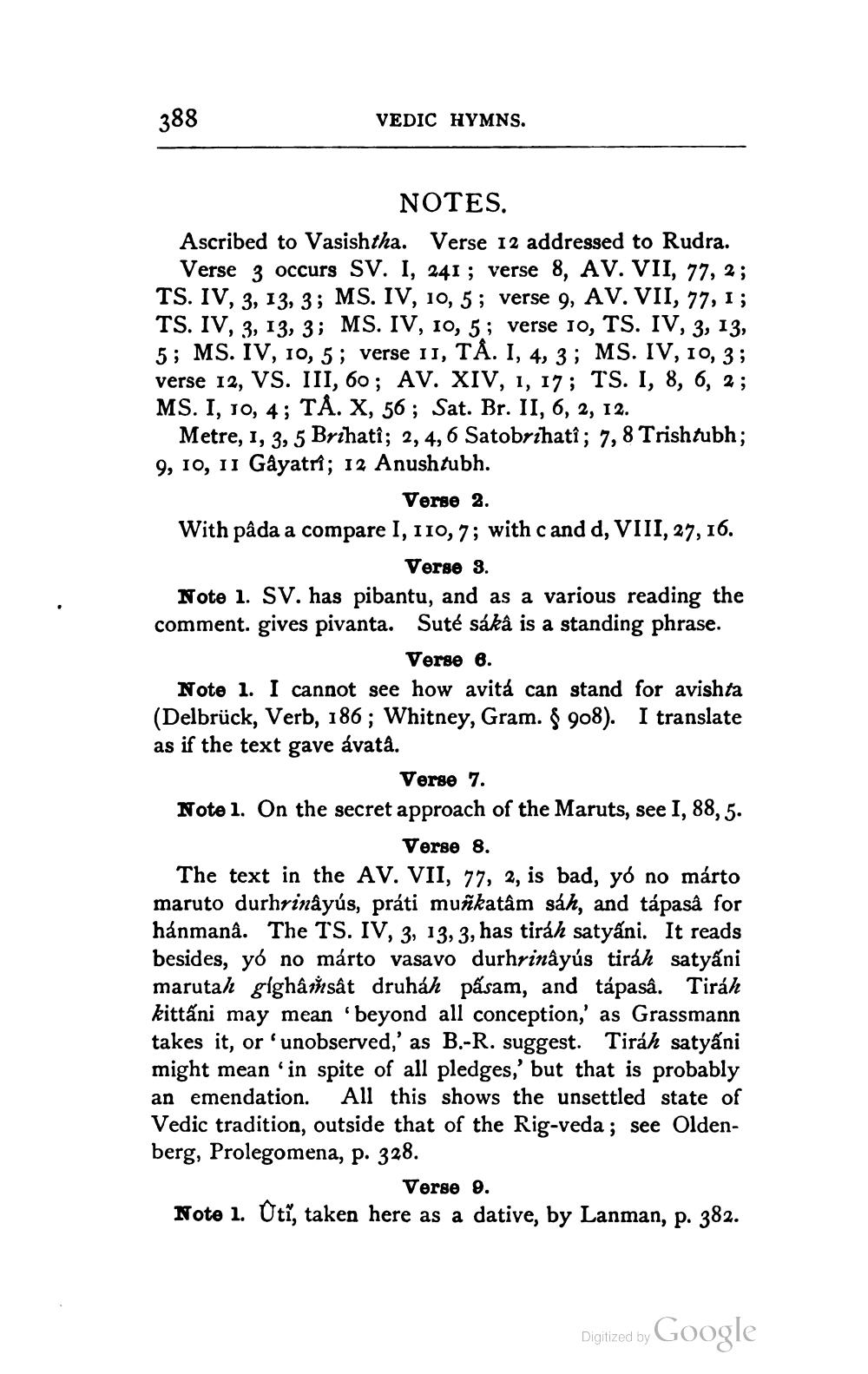________________
388
VEDIC HYMNS.
NOTES. Ascribed to Vasishtha. Verse 12 addressed to Rudra.
Verse 3 occurs SV. I, 241 ; verse 8, AV. VII, 77, 2; TS. IV, 3, 13, 3; MS. IV, 10, 5; verse 9, AV. VII, 77, 1 ; TS. IV, 3, 13, 3; MS. IV, 10, 5; verse 10, TS. IV, 3, 13, 5; MS. IV, 10, 5: verse 11, TÅ. I, 4, 3; MS. IV, 10, 3; verse 12, VS. III, 60; AV. XIV, 1, 17; TS. I, 8, 6, 2; MS. I, 10, 4; TÅ. X, 56; Sat. Br. II, 6, 2, 12.
Metre, 1, 3, 5 Brihatî; 2, 4, 6 Satobrihatî; 7, 8 Trishtubh; 9, 10, 11 Gayatri; 12 Anushtubh.
Verse 2. With pâda a compare I, 110,7; with cand d, VIII, 27, 16.
Verse 3.
Note 1. SV. has pibantu, and as a various reading the comment. gives pivanta. Suté sákâ is a standing phrase.
Verse 6. Note 1. I cannot see how avitá can stand for avishta (Delbrück, Verb, 186; Whitney, Gram. $ 908). I translate as if the text gave avata.
Verse 7. Note 1. On the secret approach of the Maruts, see I, 88,5.
Verse 8. The text in the AV. VII, 77, 2, is bad, yo no márto maruto durhrinâyús, práti muñkatâm sáh, and tápaså for hánmanâ. The TS. IV, 3, 13, 3, has tiráh satyáni. It reads besides, yo no márto vasavo durhrinàyús tiráh satyảni marutah gigharusât druháh pásam, and tápasâ. Tiráh kittấni may mean beyond all conception,' as Grassmann takes it, or 'unobserved,' as B.-R. suggest. Tiráh satyani might mean 'in spite of all pledges,' but that is probably an emendation. All this shows the unsettled state of Vedic tradition, outside that of the Rig-veda; see Oldenberg, Prolegomena, p. 328.
Verse 9. Note 1. Otî, taken here as a dative, by Lanman, p. 382.
Digized by Google




